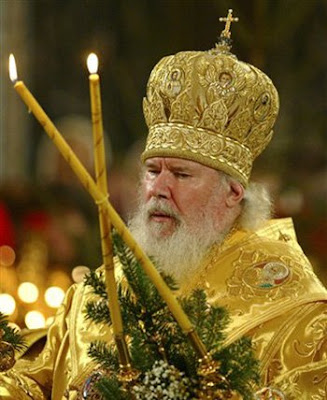
"Yet it pleased the LORD to bruise him; he hath put him to grief: when thou shalt make his soul an offering for sin" (Isaiah 53:10)
Christmas is a warm and cuddly story. There is a healthy baby boy, a loving mother, a caring father. There is starlight and angel voices, amazed shepherds and visitors from the orient; there are barnyard animals and a loyal donkey.
We are constantly reminded, however, of the hardship involved. Mary was heavily pregnant, there was no room in the inn, Herod was hunting down the rival for his throne. We would do well to remember that all these hardships are superficial and are not essential to our salvation. It is what comes later that makes the difference.
The Nativity is the feast of Our Lord's Incarnation. The Divine Word took human flesh not on a whim but for a very specific purpose. The Christ-child was on a mission, not a holiday. The babe lying in the manger was spotless and pure, the immaculate son of a holy mother, through whom we are "made holy through the sacrifice of (his body) once for all" (Cf. Hebrews 10:10).
This is, of course, promised to man long before the Incarnation. The Prophet Isaiah announces that a "Suffering Servant" will come. Christ is a servant because, born under the Law, He lived a human life in obedience to the Father. He suffers because He is the Paschal lamb.
When the Hebrews fled Egypt, as God passed over Egypt at midnight, they had the blood of a sacrificial lamb daubed over their doorposts. "For the LORD will pass through to strike the Egyptians; and when He sees the blood on the lintel and on the two doorposts, the LORD will pass over the door and not allow the destroyer to come into your houses to strike you." (Exodus 12:23). Just as the Jews were saved by the blood of the lambs of that first passover, so we are saved by the blood of Christ the Paschal Lamb.
Isaiah puts it thus "Yet it pleased the LORD to bruise him; he hath put him to grief: when thou shalt make his soul an offering for sin" (Isaiah 53:10). Even though the Christ-child is God's own beloved Son, more pure and holy and precious than anything in the whole universe, God's plan is still that of sacrifice. The babe in the manger will grow up to be bruised, put to grief, and ultimately his soul shall be made an offering for sin.
It's easy to forget this at Christmas time. The liturgical year has Christmas and Easter rather neatly divided. There is but a shadow of a connection between the two insofar as the Annunciation usually falls in Lent. Yet the two are intrinsically and unavoidably linked. From the moment of His birth, Christ's life steadily and sombrely progressed towards Calvary, where the blood of the Son of God would be shed.
If we are to remind the world that Christmas has a meaning, let's remember that it isn't just the Incarnation of our God, but the provision of our Paschal Lamb. In the words of the Patriarch Abraham: "God will provide for Himself the lamb" (Genesis 22:8).















